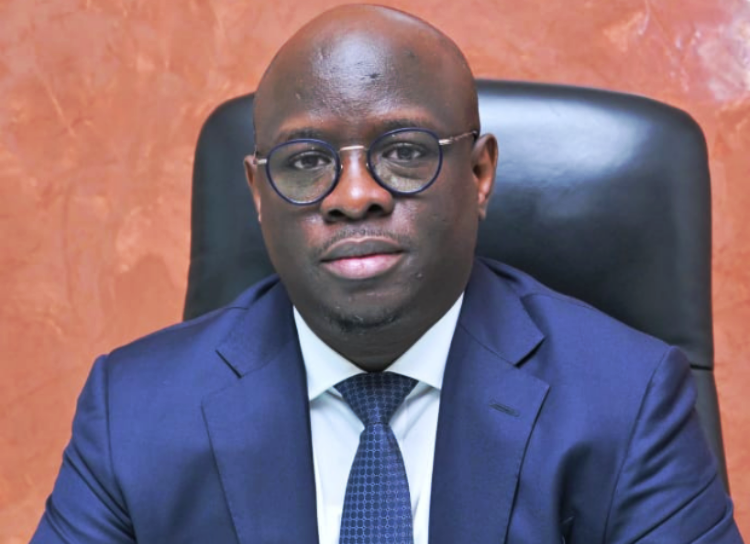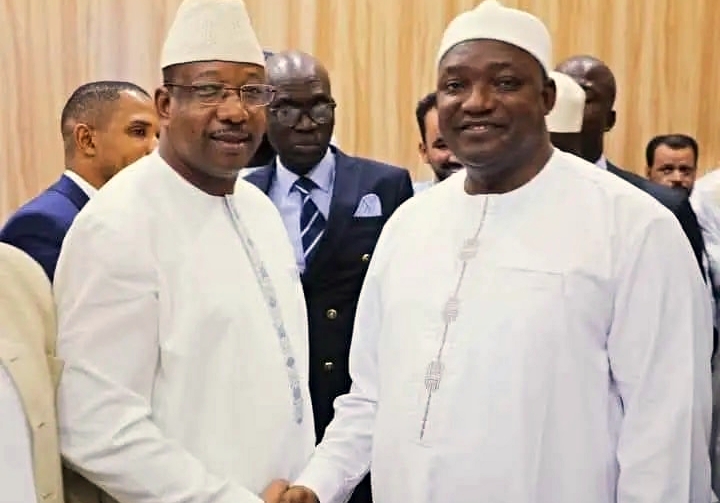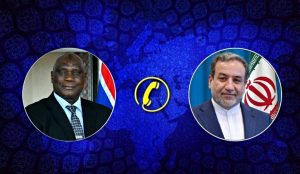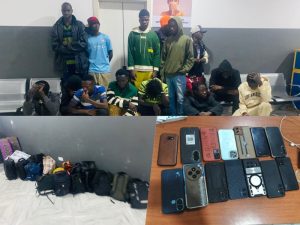Gambiaj.com – (Banjul, The Gambia) – Persistent rumors are once again shaking up The Gambia’s political landscape, as speculation swirls that Mama Kandeh, leader of the Gambia Democratic Congress (GDC), is poised to join forces with President Adama Barrow’s ruling National People’s Party (NPP).
At the heart of this speculation is an alleged secret late-night meeting between Kandeh and President Barrow at the State House, reportedly to finalize a political agreement that could see Kandeh nominated to a senior government position.
The rumors gained momentum following the resignation announcement of Foreign Minister Dr. Mamadou Tangara, triggering a frenzy on social media platforms.
Some commentators even speculated that Vice President Muhammed B.S. Jallow could soon be reassigned to Foreign Affairs, clearing the path for Kandeh to ascend to the vice presidency.
Notably, neither Kandeh nor President Barrow has publicly confirmed or denied the growing rumors. Both politicians hail from Jimara constituency in the Upper River Region, further fueling talk of a political rapprochement ahead of the 2026 presidential elections.
This is not the first time such rumors have surfaced. Over the years, speculation about a political alliance between Kandeh and Barrow has flared repeatedly. In May, GDC Administrative Secretary Ebrima Nyang firmly rejected claims of an impending merger with the ruling NPP. However, shortly before that, NPP national vice president Demba Sabally openly welcomed the idea, stating:
“I am confident that it can happen. I believe there are possibilities that he [Kandeh] could join the NPP before the 2026 election.”
This public courting by Sabally reignited fierce debate among Gambian political circles. In response, Kandeh released an audio message via WhatsApp, seeking to reassure his supporters.
In the recording, he firmly denied harboring any hidden political agenda or personal enmity with President Barrow.
“We have no personal issues, and we’ve never even argued since childhood,” Kandeh said, while emphasizing that The Gambia’s peace and welfare remain his top priorities.
Although Kandeh left the door open for cooperation with any political party—including the NPP—he was cautious, insisting that any such collaboration would have to result from sincere dialogue, not external pressure or opportunistic alliances.
Unpredictable Ally or Political Opportunist?
Mama Kandeh’s political moves have long been marked by unpredictability. After breaking ranks with Yahya Jammeh’s former ruling APRC in 2016, Kandeh notably refused to join the opposition coalition that eventually toppled Jammeh’s 22-year rule—an act widely criticized as reckless.
Many feared his refusal could have split opposition votes and prolonged Jammeh’s reign, were it not for the high voter turnout that year.
In 2021, Kandeh briefly aligned with Jammeh, who was then in exile, in a controversial move following Jammeh’s failed attempts to secure immunity and a return home.
Afterward, Kandeh again shifted positions—initially joining Ousainou Darboe and other opposition parties in contesting President Barrow’s re-election before withdrawing from the effort and accepting the Supreme Court’s ruling that affirmed Barrow’s victory.
Barrow himself has a history of strategic political shifts. In 2021, he actively sought the backing of Jammeh’s supporters, traveling to Kanilai—Jammeh’s hometown—to court his family and eventually securing the remnants of the APRC under Fabakary Tombong Jatta’s leadership.
High Stakes Ahead of 2026 Elections
With opposition veteran Ousainou Darboe branding the 2026 elections as a “do-or-die” contest, President Barrow’s camp appears eager to consolidate political support from across the spectrum.
Bringing Kandeh and his significant rural support base into the fold would represent a major political gain for the NPP.
For Kandeh, however, the stakes are equally high. His repeated political recalibrations have cost him some credibility, but they have also kept him politically relevant. Aligning with Barrow now could secure him a high-ranking government post and increase his leverage ahead of future elections.
As The Gambia’s political climate grows increasingly tense, the unanswered question remains: Is this latest round of rumors mere smoke, or the prelude to a major political realignment ahead of 2026?
For now, both sides remain silent—but their actions in the coming hours may speak volumes.










